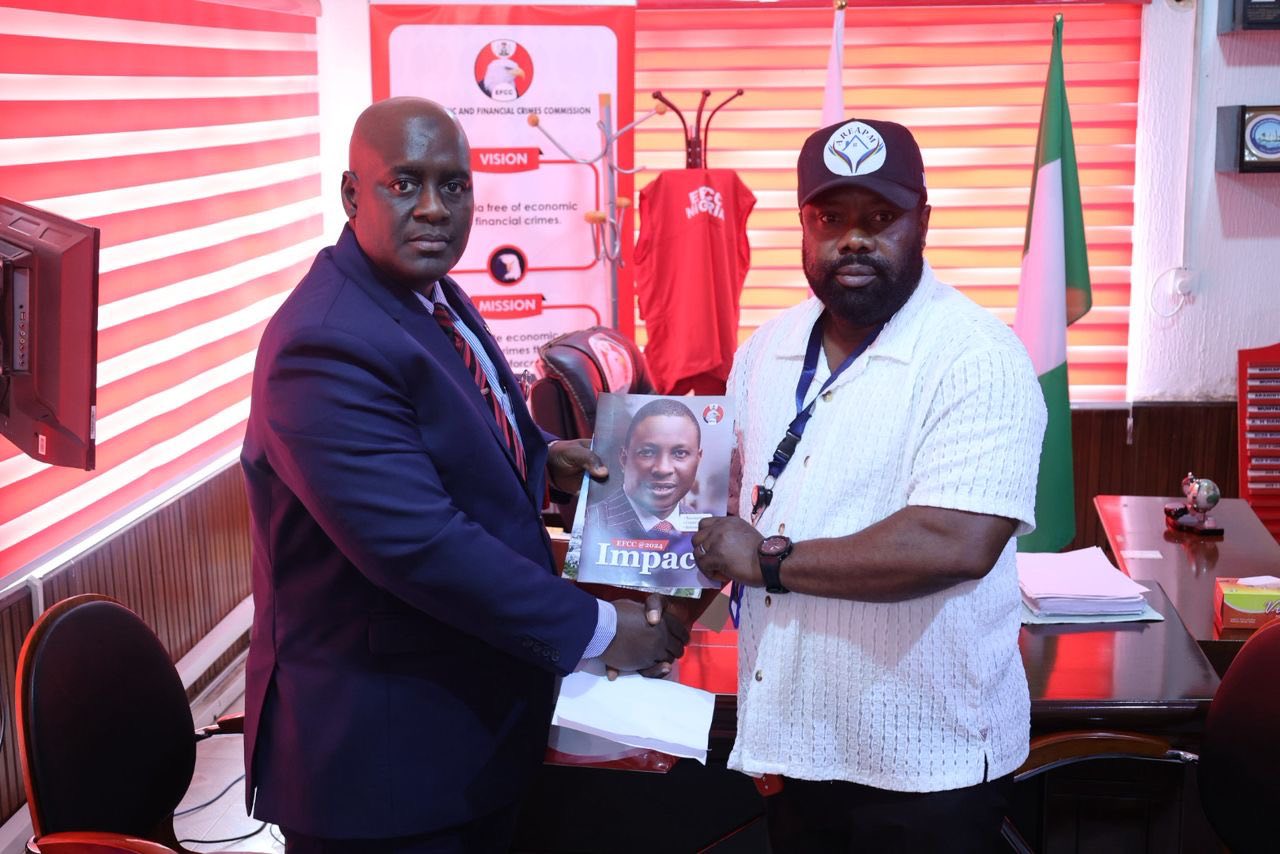General
Agusto Seeks Improvement in Nigeria’s Electric Power Production

By Adedapo Adesanya
Research and credit ratings firm, Agusto & Co. has identified strategies for more improvement in the country’s electric power production.
In a research note shared with Business Post, the agency noted that Nigeria’s electric power consumption per capita of 145KwH falls behind those of select peers, South Africa (4,198) and Ghana (351KwH), as well as the average for lower middle-income countries of 811KwH.
“Following the unbundling and subsequent privatization of the long-standing government-owned monopoly in the power sector, as part of the power sector reform of 2004, honest and objective evaluations of the Nigerian Electricity Supply Industry’s (‘NESI’) performance in the post-power privatization era have ranged from ‘minimal improvement’ to ‘more of the same’. The entire NESI value chain is fraught with structural impediments, which have continued to impede optimal performance, with operators consistently ‘passing the buck’,” Agusto noted.
Nigeria, according to the World Bank, has the largest energy access deficit in 2021, with 43 per cent (or 85 million Nigerians) of the country’s population without access to grid-connected electricity.
“As of 31 December 2022, the generating segment of the market comprised 29 operational generating plants with a combined installed capacity of 13,014MW and an average operational capacity of 4,523MW – down 29 per cent from 6,371.9MW in 2019.
“There were 12 Independent Power Plants (IPPs) in Nigeria in 2022, accounting for 31.2 per cent of the country’s total power generating capacity, a 300 basis points decline from 2021 – due largely to gas constraints and faulty machinery.”
Agusto & Co. pointed out that on average, and due largely to gas constraints, only five IPPs: Azura-Edo (26 per cent), Odukpani (19 per cent), Okpai (16 per cent), Afam VI (15 per cent), and Rivers IPP (8 per cent) jointly accounted for circa 84 per cent of the power generated from the 12 IPPs in the last four years.
Agusto also explained that lingering gas shortages are proving to be difficult for Africa’s largest economy.
“Gas constraints remain prevalent despite the fact that Nigeria has the world’s ninth-largest proven gas reserves, estimated at 204 trillion cubic feet in 2022. The domestic gas market in Nigeria has been plagued by chronic underinvestment in generating and distribution infrastructure.
“At the same time, under the domestic supply obligation framework within the Gas Master Plan (GMP), all gas companies are required to supply an assigned quota of gas to critical sectors (including electric power) at prices ($2.18mscf) lower than what is obtainable in international markets (average of $7.52mscf in the US market in 2022).”
As a result, “operators of thermal plants struggle to secure viable gas contracts at the approved price. As at the end of 2022, 25 of the country’s 29 GenCos were gas-powered, underscoring the urgency of finding a long-term solution to gas supply constraints,” the note explained.
The firm noted that the weakest link in the NESI value chain is the Transmission Company of Nigeria (TCN), which is still entirely government-owned.
“The national grid has a wheeling capacity of circa 8,100MW, which pales in comparison to the nation’s peak electricity demand of 19,798 MW. This implication is that even with an increase in the generating capacity of the grid-connected IPPs, the TCN is unable to evacuate more than 8,100MW.”
Agusto & Co. noted that the TCN is a critical bottleneck in the supply of electricity and has stalled investment in power generation.
“On the other hand, the TCN continues to blame load rejection by distribution companies, particularly during the rainy season, for the high frequency of grid collapses.”
Agusto & Co. anticipates that the current Nigerian Electricity Grid Maintenance Expansion and Rehabilitation Program (NEGMERP), which aims to expand the country’s grid network through the diligent execution of network expansion projects funded by both the Federal Government and donors, will result in some growth in NESI in the short term.
This is in addition to the Presidential Power Initiative signed with Siemens AG, which is expected to result in an additional 25,000MW of operational capacity from the national grid.
“The completion of such projects will assure prospective power generation companies that the TCN has ample capacity to receive generated electricity. With a more efficient TCN, Nigeria can achieve self-sufficiency in power supply, making electricity exports easier through the West African Power Pool’s (WAPP) future Regional Electricity Market (REM).”
Agusto lauded President Muhammadu Buhari’s signing of the Fifth Alteration Bill No. 33, 2022 (the “Electricity Constitutional Amendment”), which allows Nigeria’s 36 States to generate, transmit, and distribute electricity in areas covered by the national grid.
“This has significant implications for the country’s struggling power sector, as it could lead to increased investment in power generation and distribution infrastructure, as well as increased competition among power providers.
“By devolving power to the States, Agusto & Co. believes the bill could also lead to more efficient and effective management of the power sector, as states will have greater control over their power supply. This could lead to more targeted investment in power infrastructure and more responsive management of power supply and demand.”
This is without some limitation as, “the bill also raises concerns about the potential for fragmentation of the power sector, as different states may have different priorities and approaches to power generation and distribution, leading some, to possibly bypass the national grid entirely.
“Furthermore, States deemed to lack a sufficient economic base may be unable to attract investors in their electricity generation, transmission, or distribution, causing them to fall behind other States in terms of electricity supply. This could constrain the business environments in these States, thereby eroding investor confidence, discouraging investment, and limiting economic growth and development.”
Giving its outlook, the firm noted that the NESI is currently in the second stage – the transitional electricity market (TEM) – on its evolutionary path, where the state-owned special purpose vehicle (the Nigerian Bulk Electricity Trading Plc – ‘NBET’) buys electricity in bulk from the generating companies and independent power producers (IPPs) and resells to the distribution companies (DisCos) under vesting contracts.
As it transitions to the medium-term market, Agusto & Co. expects more IPPs to become operational, which will significantly raise the Industry’s generation capacity over the medium term.
General
Tinubu Tasks Acting IGP Disu to Restore Peace, Strengthen Security Nationwide

By Modupe Gbadeyanka
The acting Inspector-General of Police (IGP), Mr Tunji Disu, has been charged to do everything within his powers to restore peace and strengthen security across the nation.
This task was given to the new police chief by President Bola Tinubu after being decorated at the State House in Abuja on Wednesday.
Mr Disu was chosen to succeed Mr Kayode Egbetokun on Tuesday. His appointment is expected to be approved by the Nigeria Police Council and confirmed by the Senate next week.
President Tinubu described Mr Disu’s appointment as coming at a critical moment, urging him to rebuild public confidence in the police’s capacity to do their job in collaboration with other security forces.
“I made this decision for you to assume this responsibility. I know your record. I saw the dedication you exhibited while you were in Lagos when I was governor,” the President said.
“Lead firmly but fairly, demand professionalism at every level and ensure that the safety of lives and property remains our highest priority. It’s a daunting challenge. I know you can do it. You have my word, you have my full support,” he added.
Mr Tinubu urged him to advance the security pillars of his administration’s Renewed Hope Agenda. He expressed confidence in the Acting IGP’s discipline, operational experience and leadership capacity.
“Nigeria is challenged with banditry, terrorism and other criminal activities. You will be part of the thinking and innovation to overcome them,” the President said, reaffirming his belief that Nigeria would prevail under a committed leadership.
The President also paid tribute to Mr Egbetokun, who was present with his spouse, saying, “We are a grateful nation. Nigeria appreciates your contribution to maintaining law and order.”
He urged Egbetokun to be ready to offer useful advice to his successor and wished him and his family peace, good health and success in future endeavours, noting,
“You have not succeeded without a good successor. His success will also be part of your legacy.”
Mr Tinubu urged all security stakeholders to work collectively to safeguard lives and property during this critical period.
General
Real Estate Sector Now Safe Haven for Fraudsters—EFCC

By Modupe Gbadeyanka
The chairman of the Economic and Financial Crimes Commission (EFCC), Mr Ola Olukoyede, has lamented how “people now defraud the government and individuals and invest in real estate.”
He raised this concern when he received the executives of the Association of Real Estate and Property Managers (AREAPM) in Edo State on Wednesday.
The EFCC chief, represented by the acting Zonal Director and Deputy Commander of the Commission, Mr Sa’ad Hanafi Sa’ad, warned real estate managers against money laundering.
“We have noted with grave concern that fraudsters are laundering money and hiding proceeds of crime through real estate and property. People now defraud the government and individuals and invest in real estate,” he stated.
He noted that the agency would continue to discharge its statutory mandate of bringing those who seek to circumvent the system to book.
“As a commission, we recognise the role of Real Estate and Property Managers. Property Managers are designated non-financial businesses and professions.
“So, we expect them to be professionals and uphold the relevant rules and regulations in the discharge of their duties,” he stated, adding that, “The commission will apply the laws when there is a breach of relevant rules and regulations.”
He assured the AREAPM executives of the organisation’s willingness to collaborate with them in dealing with fraud and criminality in the sector.
“We have a unit, the Land and Property Fraud Section, which attends to issues in that regard. So, when you have challenges, you can report to us,” he stated.
In his remarks, the chairman of AREAPM in Edo State, Mr Akpesiri Michael Egbonoje, stated that the essence of the visit was to seek areas of collaboration with the commission and work out ways of combating real estate financial crimes and fraud in the state.
“Part of our strategy is to familiarise ourselves with law enforcement agencies in the state and seek for collaborative relationships. As a body, we cannot do it alone; we need help in the areas of financial crimes.
“We have tried to sanitise the space, but we realised that your agency is at the apex when it comes to dealing with financial crimes.
“We believe that structured collaboration between AREARM and the EFCC will promote financial transparency, investor confidence, and accountability within the real estate sector.”
General
Coroner’s Court Fixes April 14 for Inquiry into Death of Chimamanda Adichie’s Son

By Adedapo Adesanya
The Coroner’s Court sitting at the Yaba Magistrate Court has announced April 14, 2026, for the commencement of an inquiry into the death of 21-month-old Nkanu Nnamdi Esege, son of renowned Nigerian author Chimamanda Ngozi Adichie and Dr Ivara Esege.
Magistrate Atinuke Adetunji fixed the date on Wednesday when the matter came up before the court.
The twin child, Nkanu, died on January 7, 2026, after receiving care at Atlantis Hospital and undergoing medical procedures at Euracare Multi-Specialist Hospital in Lagos.
The child was initially admitted to Atlantis Hospital in Lagos for what was described as a worsening but initially mild illness.
The family had sought initial care as arrangements were being made to transfer him to Johns Hopkins Hospital in the United States. Atlantis referred him to Euracare for pre-flight diagnostic procedures, including an MRI, lumbar puncture, and insertion of a central line.
However, the child passed away following the procedures.
His parents have alleged medical negligence and professional misconduct in connection with his death.
According to a leaked internal message sent privately to family members and close friends at the time, Ms Adichie blamed the staff of Euracare Multi-Specialist Hospital, located in Victoria Island, Lagos, for causing the demise of the lad.
“My son would be alive today if not for an incident at Euracare Hospital on January 6th,” she wrote in a broadcast message confirmed later on.
“We have now heard about two previous cases of this same anesthesiologist overdosing children. Why did Euracare allow him to keep working? This must never happen to another child,” she also wrote in the lengthy message.
The 48-year-old writer had her first child, a daughter, in 2016. In 2024, her twin boys were born using a surrogate.
-

 Feature/OPED6 years ago
Feature/OPED6 years agoDavos was Different this year
-
Travel/Tourism10 years ago
Lagos Seals Western Lodge Hotel In Ikorodu
-

 Showbiz3 years ago
Showbiz3 years agoEstranged Lover Releases Videos of Empress Njamah Bathing
-

 Banking8 years ago
Banking8 years agoSort Codes of GTBank Branches in Nigeria
-

 Economy3 years ago
Economy3 years agoSubsidy Removal: CNG at N130 Per Litre Cheaper Than Petrol—IPMAN
-

 Banking3 years ago
Banking3 years agoSort Codes of UBA Branches in Nigeria
-

 Banking3 years ago
Banking3 years agoFirst Bank Announces Planned Downtime
-

 Sports3 years ago
Sports3 years agoHighest Paid Nigerian Footballer – How Much Do Nigerian Footballers Earn





















